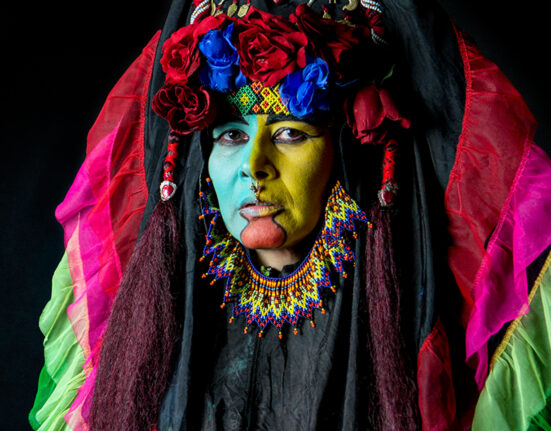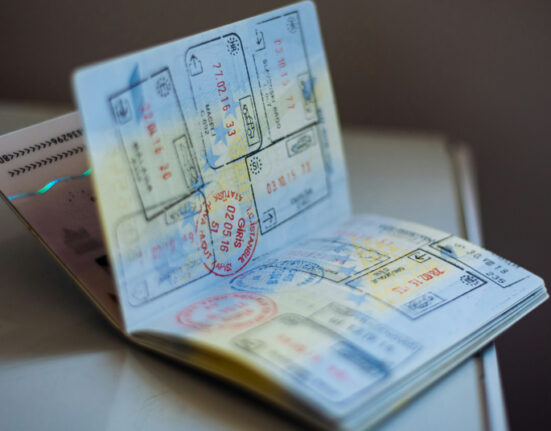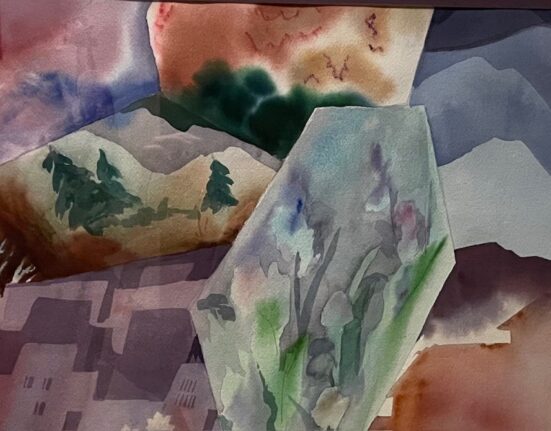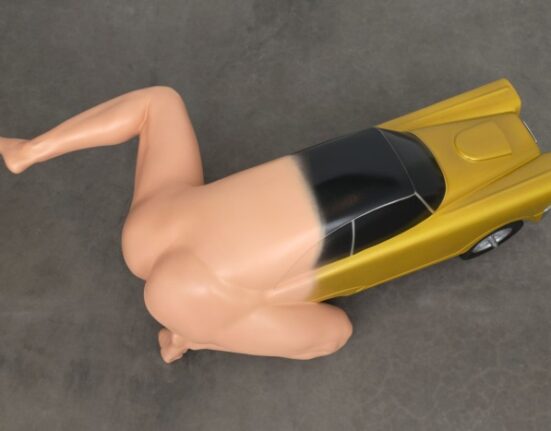Her show at White Cube Hong Kong, called “Here On Earth”, includes a new series of dramatic images featuring a dominant palette of what Giovanelli calls “sickly” green that are both seductive and unsettling.
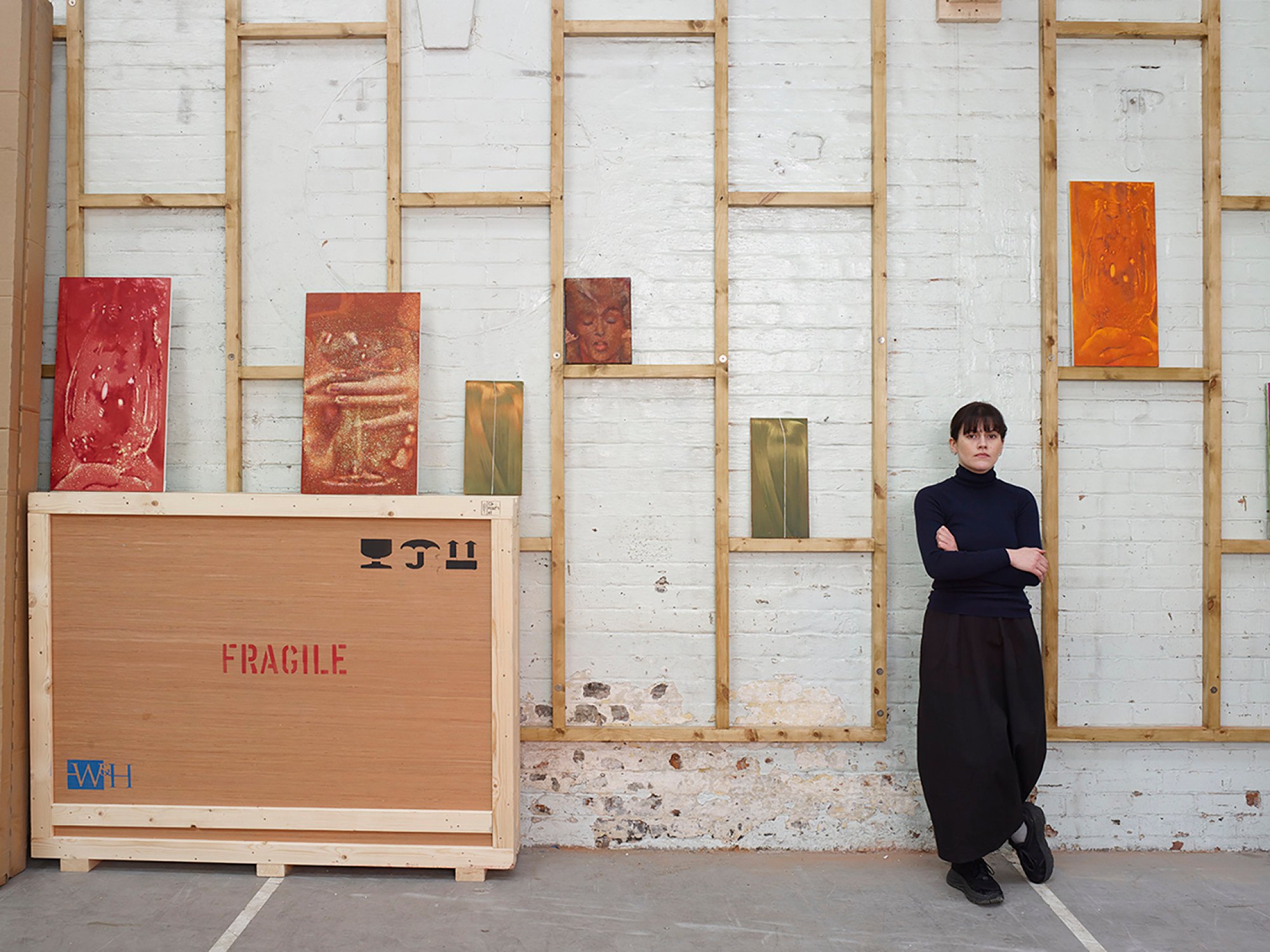
First, the exhibition opens with a large canvas depicting closed theatre curtains, so meticulously rendered you want to reach out and touch the fabric. The green curtains are tempered by a deep yellow and a pinkish-orange that resemble the reflection of stage lights on a shimmering material. It literally sets the stage for what visitors are going to see afterwards.
This is one of Giovanelli’s recurrent habits: to start shows with different versions of her “Curtain” series as dramatic introduction.
60 Picasso masterpieces to go on display at Hong Kong’s M+ Museum in March 2025
60 Picasso masterpieces to go on display at Hong Kong’s M+ Museum in March 2025
It takes the viewer across a threshold – on one side, the world and all its cares. On the other side, a visual storytelling adventure.
The artist says she is particularly interested in revealing borders, margins and “in-between places” through her paintings. This can be seen not just in her “Curtains” but also in the new series, titled “Maenad”.
The name refers to the female followers of Dionysus – the god of wine, fertility and ecstasy, also known as Bacchus, in ancient Greek myths. These women, also referred to in Roman tradition as the Bacchantes or maenads, pursued physical and mental ecstasy amid total freedom.

Each of Giovanelli’s paintings features a larger portrait of a woman in the background that is partly concealed by a smaller portrait superimposed on top.
Visitors are told that the images are taken from scenes from 1980s films in which a woman – seen with eyes closed, mouth open – is in a state of enthrallment, and it is left to the viewer to guess whether it is because of physical pleasure, mystical abandonment or something else. (In fact, the images are all from porn films.)
The ambiguity between religious and sexual ecstasy has been addressed by generations of artists – one immediately thinks of the Baroque sculptor Gian Lorenzo Bernini’s altarpiece Ecstasy of Saint Teresa.
Giovanelli says she addresses this fine line, too. “I’m interested in altered states, and in worship as both possession and ecstasy.”

In fact, that “sickly” green she uses for the portraits comes from the inspiration of pre-Renaissance Italian painters such as Duccio, Cimabue and Simone Martini, she says. They often painted faces green to express sickness or sin.
Health and salvation, the main promises made by many religious faiths, are portrayed by these ancient artists as a slow progress from a green skin tone to a more natural one, as the characters in the painting get closer to the divine.
Her “Maenad” paintings, then, talk about an in-between state amplified by having two different frames from the same film sequence appearing on the same canvas, the smaller portrait on top of a larger one.
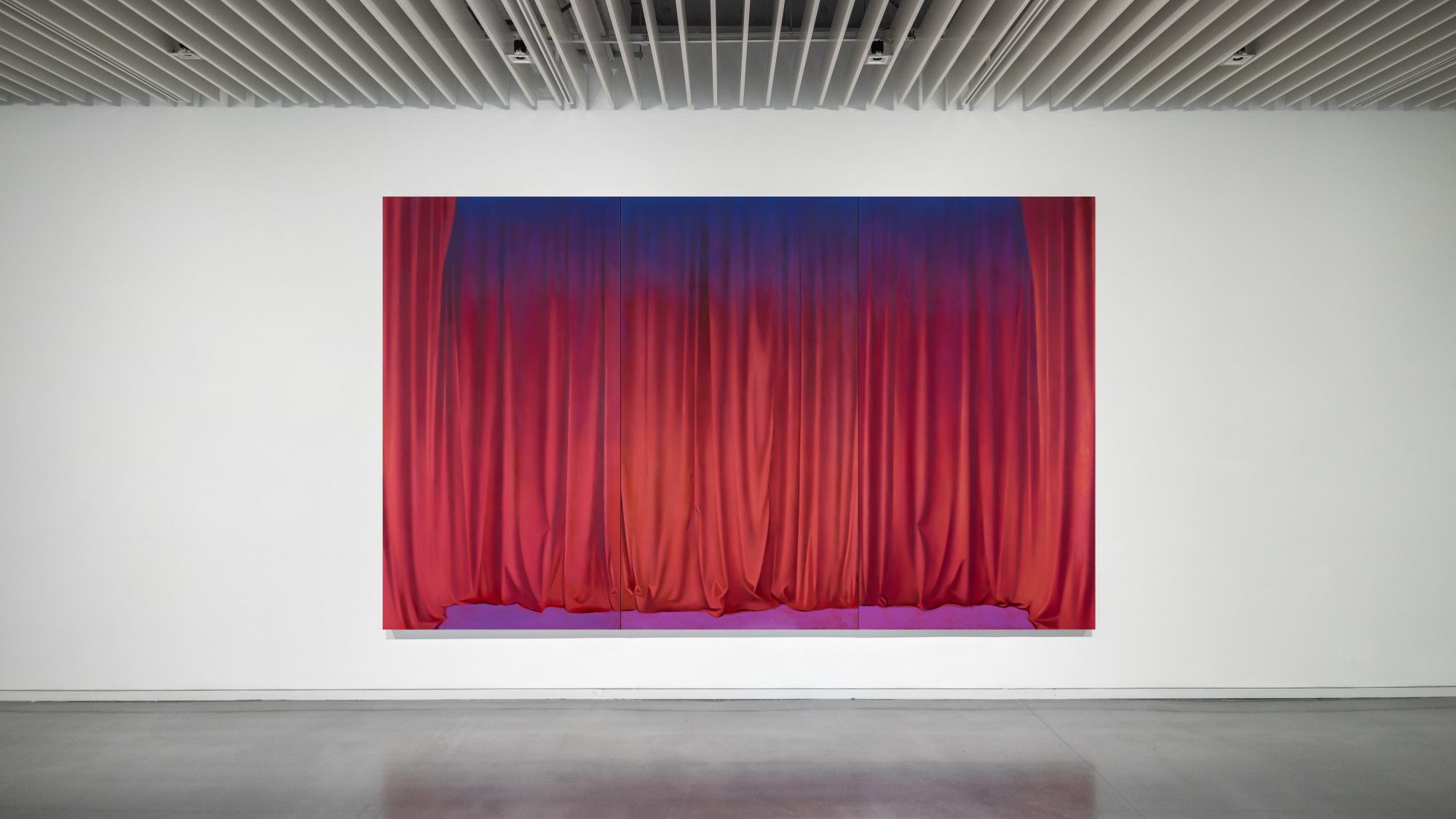
For viewers, the beautiful, green-hued women are experiencing something that could be orgasmic or religious, “an altered state that we can’t tangibly touch”, Giovanelli says.
The dislocation of one portrait on top of the other forces us to look for a few minutes longer than we would for a single image: we are aware of witnessing a moment of great intimacy, but this voyeurism is tempered by the surprise of the unnatural sickly colour of the women we stare at.
The show at the He Art Museum, which is a retrospective of Giovanelli’s works from the past five years, gives a different take on her practice. What it interrogates is not so much the ambiguity between different kinds of ecstasies but her exploration of the intersection between painting, drawing and the various influences – from Renaissance masters to pop culture – that inform her practice.

“Louise’s paintings have the magic of time standing still, and they break the boundaries between time and culture,” says Dan Qiao of Tank Shanghai, where Giovanelli will hold her 2025 show. “[They also offer] a strong spirit of British underground culture.”
This trait is clearly seen in the White Cube show, with its transgressive mixing of sacred and profane ecstasies. But that’s all Qiao will divulge of the 2025 show, with Giovanelli still working on the new paintings that she will take to Shanghai.
“Louise Giovanelli: Here on Earth”, White Cube Hong Kong, 50 Connaught Road Central, Central, Tue-Sat, 11am-7pm. Until May 18.



